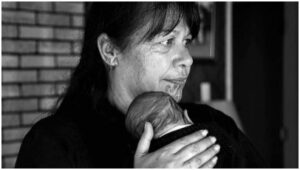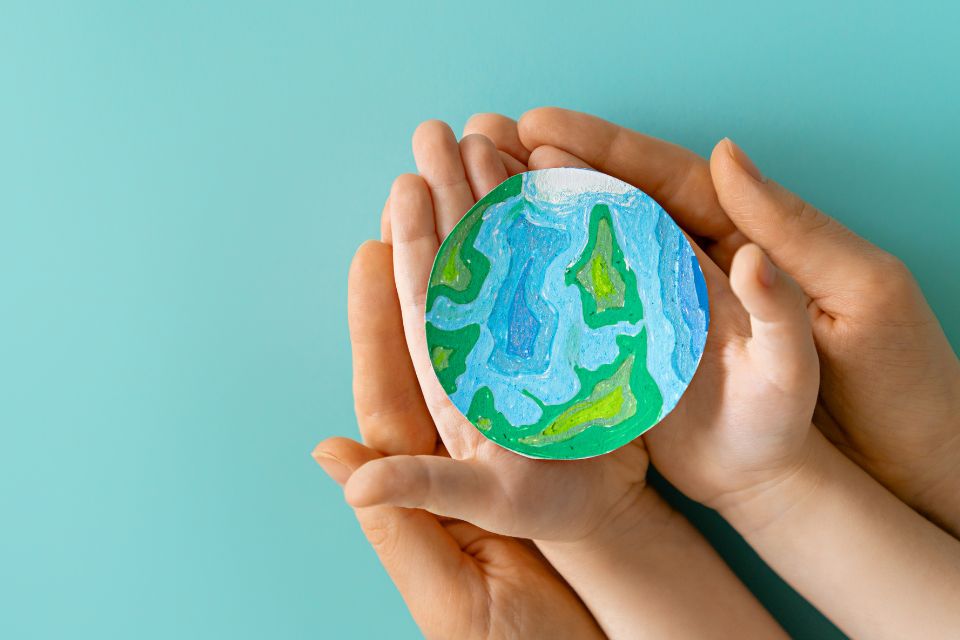Earth day takes place on April 22nd to raise issues around environmental protection. Climate change is causing crises across the globe which impacts women and families. Dr. Sarah Lockwood, Senior Researcher at Te Wānanga o Aotearoa, New Zealand, shares research that midwives are essential during climate crises to improve equitable care and safety.
In the wake of increasingly severe weather events, the question of how to deliver safe and equitable maternity care during times of crisis has never been more urgent. As we approach Earth Day (22nd April) it is becoming more apparent than ever that midwives – as trusted health advocates – play a vital role in upholding safe and sustainable healthcare during these disruptive times.
To better understand how New Zealand (and beyond) can develop a more equitable and culturally responsible future for birthing women and their families before, during, and post extreme climate events, our qualitative study (funded by The Health Research Council New Zealand) interviewed LMC’s, hospital midwives, and women who attended or birthed during a climate-induced crisis event. This event – Cyclone Gabrielle – struck various parts of the North Island, New Zealand during February 2023 and was described as the nation’s worst weather event of this century. The cyclone caused widespread flooding, power outages, and infrastructure damage, which displaced thousands of families and claimed 11 lives. Among the most vulnerable at the time were more than 3,000 pregnant individuals, however, these women and their midwives received no formal recognition or inclusion in the national response procedures.
Via thematic analysis, a common theme emerged from the study—midwives were essential yet under-resourced responders. Many described the fear of women giving birth without support, inaccessible facilities, and the pressure to deliver care in culturally unsafe or unfamiliar environments. The study found that dominant crisis response structures and systemic inequity for both community LMC’s and hospital midwives significantly impacted the level of equity provided to Indigenous (Māori) women. The study also found that while emergency services and agencies were widely acknowledged, midwives—who remained on the ground, navigating blocked roads, poor connectivity, and uncertain conditions to support birthing women—were largely absent from the conversation. These events highlighted a critical gap in emergency planning: the integration of maternity services, particularly community-based midwifery, into disaster response systems.
While our final report is still being written, preliminary recommendations include collaborative preparedness training, post-crisis support, localised agency during the event and a review of the LMC pay structure. The study also highlights important issues that need urgent attention:
- New Zealand LMC midwives deliver their care through a Continuity of Care (CoC) midwifery model, which plays a vital role in reducing the compounded risks, social inequities and health disparities for Māori and Pasifika women by providing culturally safe, relationship-based care. These realities underscore the need for maternity care models that are not only resilient but also culturally grounded and equity-focused. During times of crisis, the strengths of this model become even more apparent where such continuity offers stability when systems are under strain—yet this is only possible if midwives are adequately supported and embedded within emergency planning structures.
- The research also brings an equity lens to the fore. Vulnerable populations—including Māori, Pasifika, low-income, and rural communities—are disproportionately affected during climate-related events due to longstanding structural inequities. A lack of accessible healthcare, poor infrastructure, and systemic racism compound the risks. Embedding culturally responsive frameworks into emergency planning is essential for delivering care that is not only clinically sound but also culturally safe.
- Another critical issue is workforce capacity. New Zealand’s midwifery shortage, particularly in rural and remote areas, poses a significant risk to delivering continuity of care during emergencies. Investing in recruitment, training, and climate resilience education for midwives is not optional—it is foundational to protecting maternal and infant health in a changing climate.
We look forward to sharing a full report later this year, which underscores the urgent need for a national framework that recognises the vital role midwives play during emergency response and challenges dominant crisis response discourse which fails to address cultural safety and social inequities. Despite growing awareness, significant gaps remain in both research and policy, further hindered by the lack of case study evidence on maternity care during climate crises.
The International Confederation of Midwives has called for midwives to be recognised as key actors in climate response planning, and the New Zealand College of Midwives supports this call. Midwives are often the first—and sometimes only—healthcare professionals in disaster-struck communities. As we mark Earth Day 2025, this study serves as a timely reminder that midwives are not only central to maternal wellbeing, but that their knowledge, adaptability, and trusted relationships make them an essential part of our communities and integral to building climate-resilient, culturally grounded health systems that protect future generations – and as such, they need to be recognised and resourced accordingly.

Image: Midwife Corrina Parata had to walk through slips and wash-outs to get supplies to a client. Photo / Warwick Smith / Stuff https://www.teaonews.co.nz/2023/02/24/midwife-hikes-through-slips-and-debris-to-get-supplies-to-pregnant-mama/
About the lead researcher: Dr. Sarah Lockwood (New Zealand) is a Senior Researcher at Te Wānanga o Aotearoa and specialises in sociocultural responses to crisis events. More information about Dr. Lockwood can be found here.
April 2025



